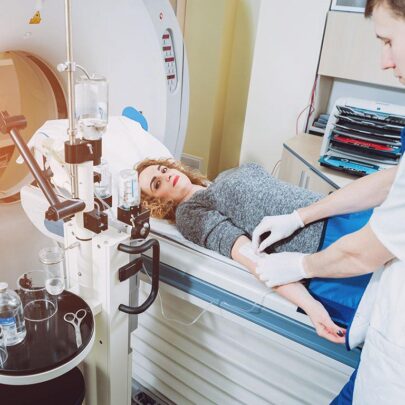Proton Therapy Study at Penn Medicine Gains New Attention
February 14, 2023
Radiation is a bedrock component of many cancer care plans. For people with breast cancer, radiation therapy is used at every stage of the disease.
Dating back to the 1890s, when the practice originated, clinicians used X-rays to deliver the radiation. Fast forward to the present day, and photon beam therapy—a type of radiation treatment using X-rays—remains a common option.
Recently, proton therapy, a different type of radiation therapy, has proliferated at treatment centers around the country, including Penn Medicine. Now, Penn and over 20 radiation centers around the country are comparing photon therapy to proton therapy in the largest study of its kind. The goal of the RadComp Study—short for Radiotherapy Comparative Effectiveness—is to help patients, physicians, and other stakeholders make more informed decisions about a critical part of the breast cancer care plan.
“This study is so important,” said PC3I Director Justin Bekelman, MD, who is leading the trial, in an interview with the Philadelphia Inquirer, “because it’s going to give patients a sense, over time, which of these treatments are better and for whom?”
Both photon and proton therapies deliver radiation to treat cancer and minimize damage to nearby healthy cells. The question is whether one or the other may be better for sparing certain normal tissues as part of breast cancer treatment, like the heart, lung, or esophagus, while still leading to similar breast cancer control.
The Inquirer profile notes that RadComp aims to enroll 1,278 patients. Results from the study, the article states, could help patients find the best treatment for them and lead to other important changes, like insurance coverage for the treatments under study. The Inquirer recently published two additional features on the topic, highlighting Penn Medicine’s commitment to proton therapy and its role as a regional leader in proton therapy, thanks in part to the Proton Therapy Center at Penn Medicine Lancaster General Health, which opened in December of 2022.


